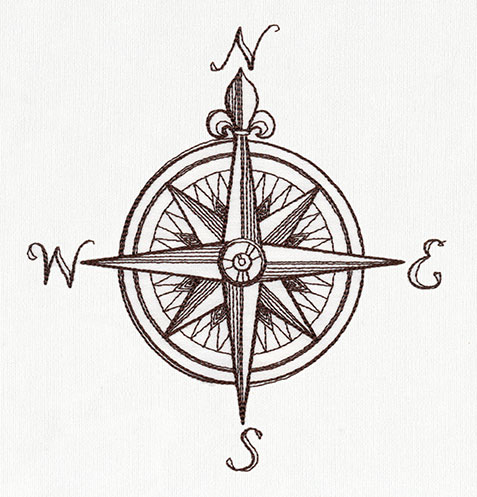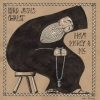A friend played for me a few minutes of an AFR podcast about “anti-Western” bias among Orthodox. There was a reference to something in one of my books (politely done, without naming me).
I messaged the hosts to say that there are two stages, one in which inquirers into Orthodoxy and new converts need to have differences highlighted sharply, as they try to get a grasp on this very unfamiliar Church they have joined. Then there’s a second stage, in which those converts will need to have the correspondences brought forward and the sharp outlines smudged.
I said that I understand my role to be a “first-stage” writer, and I welcome others to take on the “second-stage” task. We need both!
Since new inquirers are always coming in the door, and since those converts will eventually get some years further down the line, we’ll continue to need communicators working in both those areas. I’m the First Grade teacher, and it’s good to know there are many, many other teachers, of greater depth and subtlety, down the line.
Here’s an example of the difference between Orthodoxy and “Western” Christianity, from my book, Welcome to the Orthodox Church. I think some non-Orthodox believe that all such differences are inconsequential and we should brush them under the rug. But some Orthodox sense that this difference matters–something here really matters.
+++
From Welcome to the Orthodox Church:
Christian writers in the West have sometimes suspected the Orthodox Church of being “anti-intellectual” (though the work of the Ecumenical Councils suggests some competence in that area). The charge reflects the zeal for refining theological and philosophical concepts that has been evident in the West throughout the last millennium—from St. Thomas Aquinas and twelfth-century scholasticism, through the sixteenth-century Reformation, through the seventeenth-and-eighteenth-century Enlightenment, and on through the last century. In the process, the ability to reason was regrettably detached from the ability to commune with God. Theologizing and praying were sent to separate corners. Under those circumstances the two could no longer act as correctives on each other. Wider extremes appeared of ungoverned, self-indulgent emotionalism, and ungoverned, self-indulgent intellectualizing.
The dangers of the latter are not often perceived, but they arise from the false assumption that it is possible to talk about God behind his back. We can’t stand outside God and examine him under laboratory conditions; we can’t even begin to comprehend him. All we have to work with are these pitiful human brains—and they’re limited.
The limitations show when you consider how vigorously philosophers and theologians have disagreed with each other down the centuries. Great minds have applied themselves to the same great questions over and over, but rarely arrive at the same conclusions. It seems the human mind is less capacious than it thinks it is.
Fr. Thomas Hopko, the dean emeritus of St. Vladimir’s Orthodox Seminary in New York, was asked at an academic conference about the use of philosophy in writing and talking about theology. He replied, “I don’t think there is such a thing as philosophy or theology. There are *people*—who think, who act, who interact.”
That may sound surprising, especially coming from a seminary dean. But it captures an important truth. Whenever cogitation is going on, it’s going on inside a person. It’s going on inside a mind that is damaged, like the rest of creation, by the Fall. Such a person is not an infallible reasoning machine, but an eternal being designed to bear the light of Christ, and growing daily either toward or away from that destiny.
The church fathers, Fr. Hopko went on, used the concepts of their time to communicate with contemporaries, but they regarded philosophy’s achievements with some skepticism. St. Gregory of Nyssa (AD 335–395) wrote that secular education is “always in labor but never gives birth,” and St. Gregory of Nazianzus (AD 330–390) said, “We theologize in the manner of the Apostles, not that of Aristotle.” Orthodox hymnography regularly contrasts the mentally darkened philosophers with the wise fishermen.
(On the other hand, wherever there is truth, it is God’s truth. St. Justin the Martyr said that when philosophers and wise elders of other faiths speak the truth, it is because they have had some share in the “seed of the word [logos].” Wherever truth appears, it was given by our Lord Jesus Christ. “Whatever things were rightly said, among all people, are the property of us Christians,” he wrote.)
Fr. Hopko continued, “There is no ‘reason alone’ that you can appeal to,” no autonomous reasoning ability that would enable any person, even an atheist, to do theology accurately.
“What is autonomy but the nous?” he asked. “The ratio, human reason, is fallen too! There is no ‘reason alone.’ . . . People are filled with hang-ups and passions and prejudices, even when they’re philosophers. As you may have noticed.”
Fr. Hopko continued, “The mind is fallen. . . The image of God cannot be totally obliterated, but it is fallen, it is screwed up, and unless it is illumined and saved by the Lord it cannot function properly. If you’re not following a holy praxis, your mind’s not going to work right.”
I quote Fr. Hopko at length because this line of thinking is so unexpected. His emphasis on a holy praxis is particularly important. Philosophers and theologians don’t work in a vacuum but in a social environment where, as in any profession, there are prizes to win or lose. There are temptations to judgmentalism, anger, stung pride, ridicule, and all-around anxiety. A pattern develops of searching others’ work for flaws, and seeking ways to put one’s own original ideas in view. Spiritual dangers abound, so spiritual disciplines are vital.
+++
This is, admittedly, a particularly good time to become Orthodox. It was harder in the time of people like Bp Dmitri Royster (OCA) of Dallas, who with his older sister (both teens) joined a Greek Orthodox church where everything was in Greek. But now the rate of converts is running 50% in some jurisdictions, and in the Antiochian Archdiocese 76% of clergy are converts.
That means that these are people who are Orthodox on purpose, who have done joined the Church after a lot of reading, study, and prayer. (Sometimes at significant personal cost, like my husband who walked away from 15 years as an Episcopal priest to start an Orthodox mission with five families.) I can’t tell you how many times people who grew up in the Orthodox Church have told me that they learned more about their faith from my books and videos than they’d ever learned in a lifetime.
The momentum exerted by the great number of converts is having a leavening effect. I can’t claim that the Orthodox Church everywhere and always is “this good.” But right now, the American Orthodox church is in revival.

















